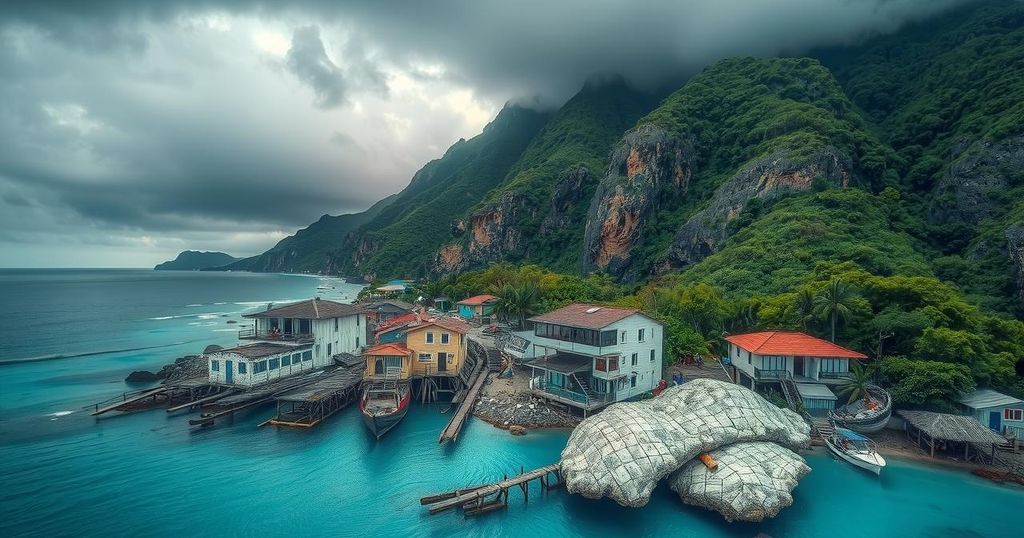Devastation in Mayotte and Vanuatu: Cyclone and Earthquake Clashes
Cyclone Chido has caused severe destruction in Mayotte, with wind speeds over 225 km/h leading to “apocalyptic scenes” in poor neighborhoods. Concurrently, a 7.3 magnitude earthquake hit Vanuatu, causing landslides near a shipping terminal. Both events necessitate urgent humanitarian response.
The French Indian Ocean territory of Mayotte has recently experienced a devastating impact from Cyclone Chido, characterized by wind speeds exceeding 225 kilometers per hour. Residents have described the aftermath as resembling “apocalyptic scenes,” particularly devastating for the impoverished neighborhoods where makeshift sheet-metal homes stood. The cyclone has resulted in widespread destruction, primarily affecting those in vulnerable living conditions.
In an unrelated yet equally severe incident, a magnitude 7.3 earthquake struck near the coast of Vanuatu in the South Pacific Ocean. This seismic event triggered landslides close to the region’s international shipping terminal, further complicating the humanitarian situation for the affected population. Both natural disasters underscore the urgent need for emergency preparedness and response in these vulnerable areas.
Cyclone Chido is noted as one of the most severe storms to impact Mayotte in nearly a century, leading to unprecedented damage especially among economically disadvantaged communities. The cyclone’s intensity reflects broader concerns regarding climate change and the increasing frequency of extreme weather events in tropical regions. Meanwhile, Vanuatu is geographically positioned in an area prone to seismic activity, leading to regular earthquakes; however, a quake of this magnitude can lead to significant infrastructural damage and loss of life, necessitating immediate international attention and aid.
In conclusion, both Cyclone Chido’s catastrophic effects in Mayotte and the significant earthquake in Vanuatu emphasize the vulnerability of these regions to natural disasters. The widespread destruction calls for mobilization of humanitarian assistance and resources to support recovery efforts, highlighting the pressing need for enhanced resilience strategies against future calamities.
Original Source: www.ndtv.com




Post Comment